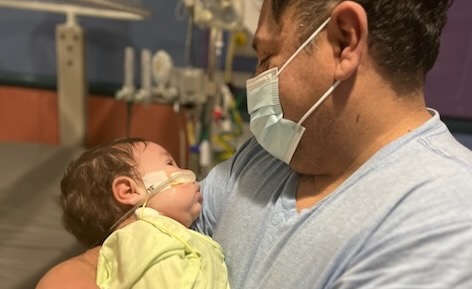California has multiple programs that provide support to children with complex medical needs and disabilities. But accessing and making use of these programs is a minefield for many families.
Vivian Vasquez and John Hernandez discovered that for themselves after their daughter, Claire, was born with a rare genetic disorder.










